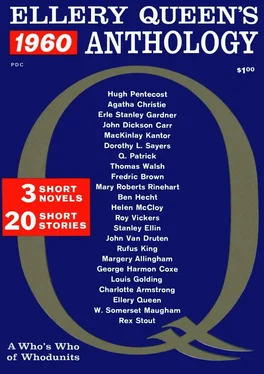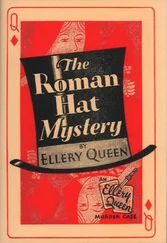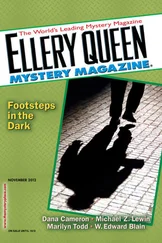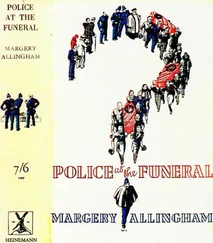I waved a hand. “So actually what’s the difference? If they’re sent back where they came from they’re doomed, so they said. Between a doom here and a doom there, that’s all they have to pick from. One interesting angle is that you are harboring fugitives from justice, and I am not. I told Purley they’re here.”
“You what?” Wolfe bellowed.
“What I said. That’s the advantage of having a reputation for gags — you handle your face right. I told him they were here in our front room, and he sailed right over it. So I’m clean, but you’re not. You can’t even just show them out. If you don’t want to call Cramer yourself I could get Purley at the shop and tell him they’re still here, and why hasn’t he sent for them?”
“It might be better,” Tina said, not with hope, “just a little better, if you would let us go, ourselves? No?”
She got no answer. Wolfe was glaring at me. It wasn’t that he needed my description of the situation to realize what a pickle he was in; I have never tried to deny that the interior decorator did a snappier job inside his skull than in mine. What had him boiling was my little stunt of getting it down that neither Carl nor Tina could drive a car. But for that it would still have been possible to let them meet the law and take what they got; now that was out of the question.
“There is,” he said, glaring, “another alternative to consider.”
“Let us just go,” Tina said.
“Pfui.” He moved the glare to her: “You would try to skedaddle, and be caught within an hour.” Back to me: “You have told Mr. Stebbins they are here. We can simply keep them here and await developments. Since Mr. Cramer and Mr. Stebbins are still there at work, they may soon disclose the murderer.”
“Sure, they may,” I agreed, “but I doubt it. They’re just being thorough, they’ve really settled for Carl and Tina, and what they’re looking for is evidence, especially what it was that led Wallen to the barbershop — though I suppose they haven’t much hope of that, since Carl and Tina could have taken it along.”
Wolfe’s eyes went to Carl: “Did you and your wife leave the shop together?”
Carl shook his head. “That might have been noticed, so she went first. When she was gone I waited until they were all busy and Mr. Fickler was walking behind the partition, then I ran upstairs to meet her there.”
“When was that?” I asked. “Who was in Tina’s booth with Wallen?”
“I don’t think anybody was. Janet had come out a while before. She was at Jimmie’s chair with a customer.”
“Good heavens,” I turned my palms up. “You left that place less than a minute, may be only a few seconds, before Fickler found Wallen dead!”
“I don’t know,” Carl wasn’t fazed. “I only know I didn’t touch that man.”
“This,” I told Wolfe, “makes it even nicer. There was a slim chance we could get it that they left sooner.”
“Yes.” He regarded me. “It must be assumed that Wallen was alive when Ed left the booth, since that young woman — what’s her name?”
“Janet.”
“I call few men, and no women, by their first names. What’s her name?”
“Stahl,” Tina said. “Janet Stahl.”
“Thank you... Wallen was presumably alive when Ed left the booth, since Miss Stahl followed him. So Miss Stahl, who saw Wallen last, and Mr. Fickler, who reported him dead — manifestly they had opportunity. What about the others?”
“You must remember,” I told him, “that I had just dropped in for a shave. I had to show the right amount of intellectual curiosity, but I had to be careful not to carry it too far. From what Ed said, I gathered that opportunity is fairly wide open, except he excludes himself. As you know, they all keep darting behind that partition for one thing or another. Ed can’t remember who did and who didn’t, during that ten or fifteen minutes, and it’s a safe bet that the others can’t remember, either. The fact that the cops were interested enough to ask shows that Carl and Tina haven’t got a complete monopoly on it. As Ed remarked, they’ve gotta have evidence, and they’re still looking.”
Wolfe grunted in disgust.
“It also shows,” I went on, “that they haven’t got any real stopper to cork it, like prints from the car or localizing the scissors or anything they found on the corpse. They sure want Carl and Tina, and you know what happens when they get them, but they’re still short on exhibits. If you like your suggestion to keep our guests here until Cramer and Stebbins get their paws on the right guy, it might work fine as a long-term policy, but you’re against the idea of women living here, or even a woman, and after a few months it might get on your nerves.”
“It is no good,” Tina said, back to her gasping whisper again. “Just let us go! I beg you, do that!”
Wolfe ignored her. He leaned back, closed his eyes, and heaved a deep sigh, and from the way his nose began to twitch I knew he was coercing himself into facing the hard fact that he would have to go to work — either that or tell me to call Purley, and that was ruled out of bounds both by his self-respect and his professional vanity.
Wolfe sighed again, opened his eyes, and rasped at Tina, “Except for Mr. Fickler, that man questioned you first. Is that right?”
“Yes, sir.”
“Tell me what he said. What he asked. I want every word.”
I thought Tina did pretty well, under the circumstances. She wrinkled her brow and concentrated, and it looked as if Wolfe got it all out of her. But she couldn’t give him what she didn’t have.
He kept after it: “You are certain he showed you no object whatever?”
“Yes, I’m sure he didn’t.”
“He asked about no object, anything, in the shop?”
“No.”
“He took nothing from his pocket?”
“No.”
“The newspaper he had. Didn’t he take that from his pocket?”
“No, like I said, he had it in his hand when he came in the booth.”
“In his hand or under his arm?”
“In his hand. I think... yes, I’m sure.”
“Was it folded up?”
“Well, of course newspapers are folded.”
“Yes, Mrs. Vardas. Just remember the newspaper as you saw it in his hand. I’m making a point of it because there is nothing else to make a point of, and we must have a point if we can find one. Was the newspaper folded up as if he had had it in his pocket?”
“No, it wasn’t.” She was trying hard. “It wasn’t folded that much. Like I said, it was a Daily Press. When he sat down he put it on the table, at the end by his right hand — yes, that’s right, my left hand — I moved some of my things to make room — and it was the way it is on the newsstand, so that’s all it was folded.”
“But he didn’t mention it?”
“No.”
“And you noticed nothing unusual about it? I mean the newspaper?”
She shook her head. “It was just a newspaper.”
Wolfe repeated the performance with Carl, and got more of the same. No object produced or mentioned, no hint of any. The only one on exhibit, the newspaper, had been there on the end of the table when Carl, sent by Fickler, had entered and sat, and Wallen had made no reference to it. Carl was more practical than Tina. He didn’t work as hard as she had trying to remember Wallen’s exact words, and I must say I couldn’t blame him.
Wolfe gave up trying to get what they didn’t have. He leaned back, compressed his lips, closed his eyes, and tapped with his forefingers on the ends of his chair arms. Finally he opened his eyes. “Confound it,” he said peevishly, “it’s impossible. Even if I had a move to make I couldn’t make it. If I so much as stir a finger, Mr. Cramer will start yelping and I have no muzzle for him. Any effort to—”
Читать дальше












